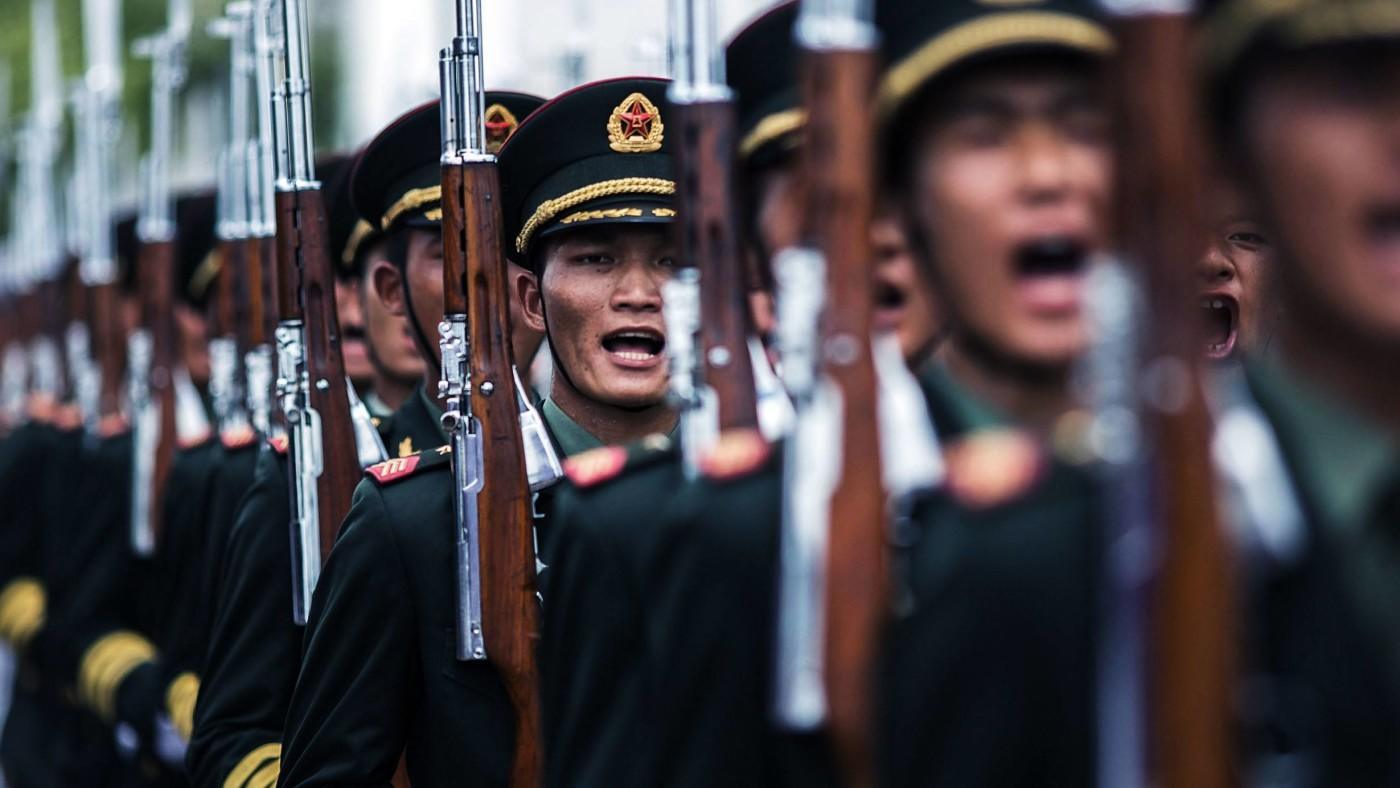While Europe is bogged down in bickering over interior policy and in a rather feeble war against radical Islamism, Northeast Asia has become the setting for events which are going unnoticed in the West. However, these developments may be decisive for the future. We only need to look at the major concession made by Japanese Prime Minister Shinzo Abe to the President of South Korea Park Geun-hye.
The Japanese government has taken responsibility for the enslavement of several thousand Korean “comfort women” during the Second World War, and has granted eight million dollars to the 46 survivors who currently reside in the oddly named Harmony Centre in Seoul. Here, these women are often met by journalists and visiting politicians in order to showcase Korean rights and highlight the abuses of Japanese imperialism. This Korean cause is valid, but seems to have been increasingly used as a tool for propaganda over the last few years.
President Park Geun-hye, whose father Park Chung-hee was the military dictator of South Korea from 1962 to 1979, has just outlawed the sale of a detailed, profound work by Korean academic Park Yu-ha, which reveals that this wartime prostitution was both highly complex and for the most part managed by Korean collaborators. Park Chung-hee was himself a senior officer in the Japanese army which occupied China during the Second World War. Perhaps his daughter is trying to conceal her father’s past through her anti-Japanese sentiment?
The Japanese government has nevertheless admitted its responsibility, although less in an act of contrition than to restore, if possible, healthy relations with South Korea. This willingness belies Japan’s greatest fear, and one which Europeans would share if they knew where to look. South Korea already has close economic ties to China, and Japan is worried it will accept Chinese President Xi Jinping’s proposal to unite North and South Korea on the condition the two countries become neutral states.
This Chinese ploy is the Asian version of a Soviet strategy rolled out in the 1970’s, which offered to unite Germany in exchange for its neutrality. At the time this idea was known as “Finlandization”, and offered a neutral Europe supervised by the USSR, which appealed enormously to the Western extreme left. The German leaders didn’t fall into the trap, but President Park Geun-hye has hardly displayed a passion for democracy and transparency, and accepting this move could see her go down in history as the woman who united her country.
How would the American army react to this scenario, given it has 70,000 men stationed in South Korea? With Obama as president, it may refuse to react whatsoever. And Japan would most probably equip itself with nuclear weapons – it isn’t far off today – and become a fearsome military power ready to take on China. Japanese public opinion is relatively pacifistic, but anti-Chinese sentiment is growing quickly. If this scenario plays out, in the meantime China would have managed to lock down the North Pacific Ocean.
Even today, China is moving forward with its creation of artificial islands in the South Pacific Ocean around Vietnam and the Philippines. These “islands” could be easily transformed into naval bases, thereby allowing China to control the southern maritime route from Asia to Europe and the United States, which is currently the main artery of globalization.
This path is used to transport all of our electronic devices, among others, and currently enjoys free movement under the protection of the United States Seventh Fleet. The Chinese leaders’ driving objective is to get rid of this naval force and replace it with its own navy. If this was achieved, it would herald the end of free trade between the West and the East, most likely lead to the fall of Taiwan and suffocate Japan if the Japanese failed to react. China’s strategy can be consulted freely in a range of works published in Beijing; it is no secret that the Chinese leaders are looking to divide the world, with the United States in the West and China in the East.
This would impose a false symmetry upon our world, as the role of the United States in the West is accepted, in particular by NATO. On the other hand, Chinese ambition is fought by all of its neighbors, who are unwilling to accept China’s imperialist, communist and anti-democratic government. But the Chinese leaders do have a strategy and are rolling it out step by step.
The West’s sole strategy is the status quo, but it has seemingly little interest in maintaining it. Japan remains the West’s only ally in the East, but its people will not commit to fighting alone. This is the summary and the importance of Japan’s seemingly localized avowal of responsibility for the fates of 46 misfortunate Korean women between the ages of 80 and 90. But in a match of Go, each turn is decisive; players simply have to pay attention in order predict the following move.


